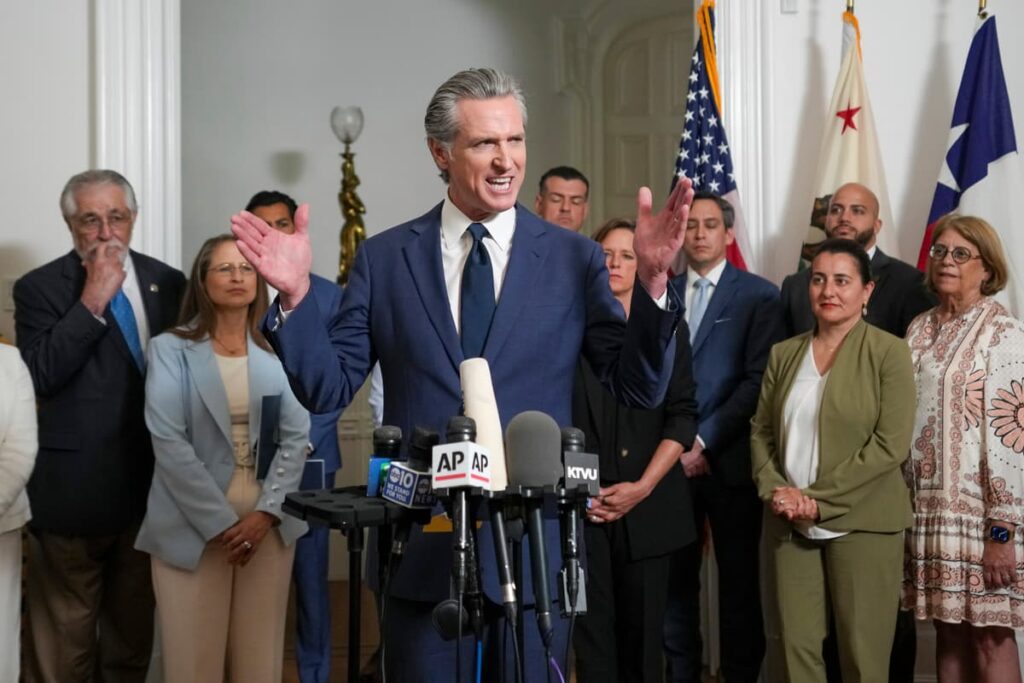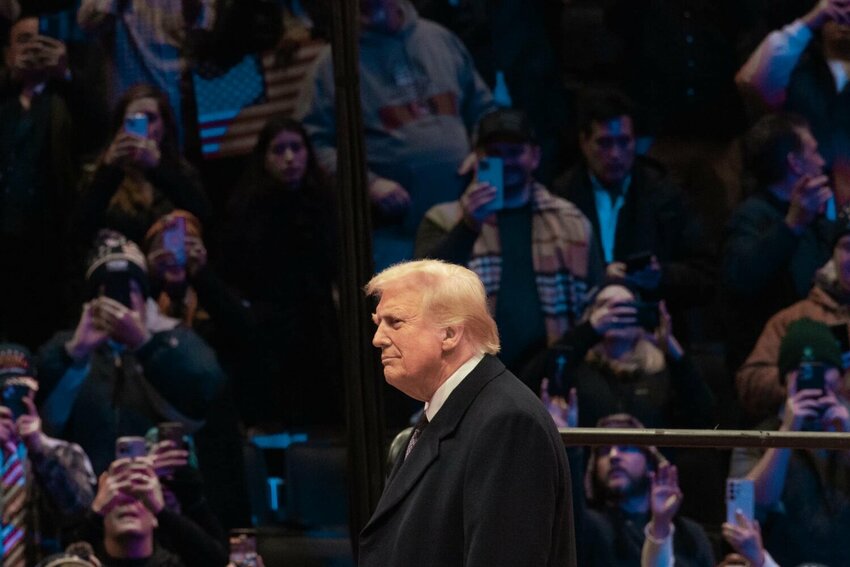
California Governor Gavin Newsom is undergoing a significant transformation in his political approach as he eyes the 2028 presidential nomination. Recent polls indicate a surge in his popularity, highlighting a potential shift in the Democratic Party’s direction amid declining net favorability ratings. With this in mind, Newsom is repositioning himself from a progressive figure to a more centrist candidate, aiming to attract independents dissatisfied with both the Democratic and Republican parties.
This shift has become particularly evident in his recent stance on fossil fuels. Faced with soaring gas prices that could reach $8 per gallon, Newsom is reversing his prior opposition to the oil industry. Two major refineries, Phillips 66 and Valero, have announced closures, raising concerns about supply in California, the nation’s second-largest gasoline market. In response, Newsom has acknowledged the state’s reliance on fossil fuels and is advocating for a pragmatic energy transition.
At a recent press conference, he stated, “We are all the beneficiaries of oil and gas. No one’s naive about that. So it’s always been about finding a just transition.” Currently, he is negotiating with fellow Democrats on a proposal to boost oil production, which aims to bypass climate regulations and expedite environmental approvals for new drilling projects. This legislative effort could receive approval before the state’s session concludes in mid-September.
Newsom’s shift represents a marked departure from his earlier commitments. Previously, he labeled the climate crisis a “fossil fuel crisis” at the 2023 United Nations summit and supported measures to penalize oil companies for excessive profits. In April, he tasked the California Energy Commission with collaborating with refinery operators to address fuel supply issues, leading to recommendations that align closely with industry interests.
As Californians face an average gas price of $4.49 per gallon—significantly above the national average—Newsom’s actions reflect an urgency to stabilize the market. However, his proposal has met pushback from more than 120 environmental organizations, which argue that it favors the oil industry at the expense of public health and the environment.
In addition to his energy policy changes, Newsom has taken other moderate positions that diverge from his previous progressive platform. He has recently hosted allies of former President Donald Trump on his podcast, proposed cuts to healthcare benefits for immigrants, and advocated for stringent measures against homeless encampments. Notably, in May, Newsom suggested limiting healthcare coverage for undocumented immigrants, citing California’s $12 billion budget deficit. This proposal, which passed in June, contrasts sharply with the previous year’s move to extend free healthcare to all low-income adults, regardless of immigration status, a program that ultimately exceeded its budget by $2.7 billion.
Moreover, his new approach to homelessness has included a directive for California cities to clear encampments, emphasizing a need for decisive action. “No more excuses,” he stated. “It is time to take back the streets.”
While Newsom’s pivot toward moderate policies may enhance his appeal to a broader electorate, it has drawn criticism from progressives. Norman Solomon, national director of the progressive group RootsAction, condemned the governor’s actions, stating that he seems “willing to throw basic decency under the 2028 campaign bus.” Solomon accused Newsom of abandoning core values in pursuit of the presidency, suggesting that his transformation risks alienating those who once supported him for his liberal stance.
As Gavin Newsom navigates this critical juncture in his political career, the implications of his policy shifts will likely resonate beyond California, influencing national conversations as the 2028 election approaches.






